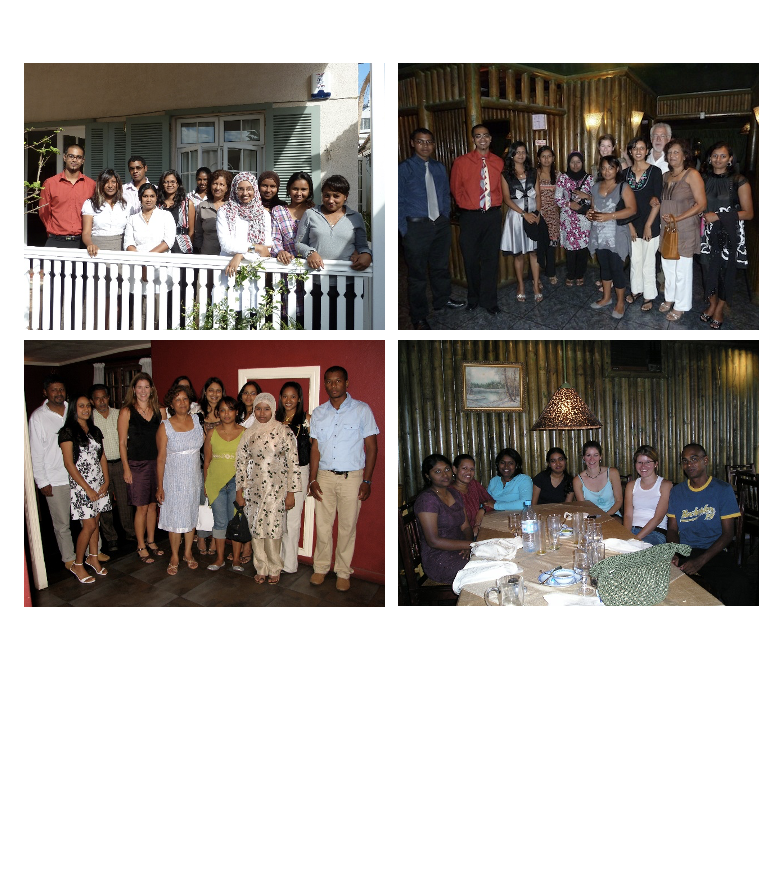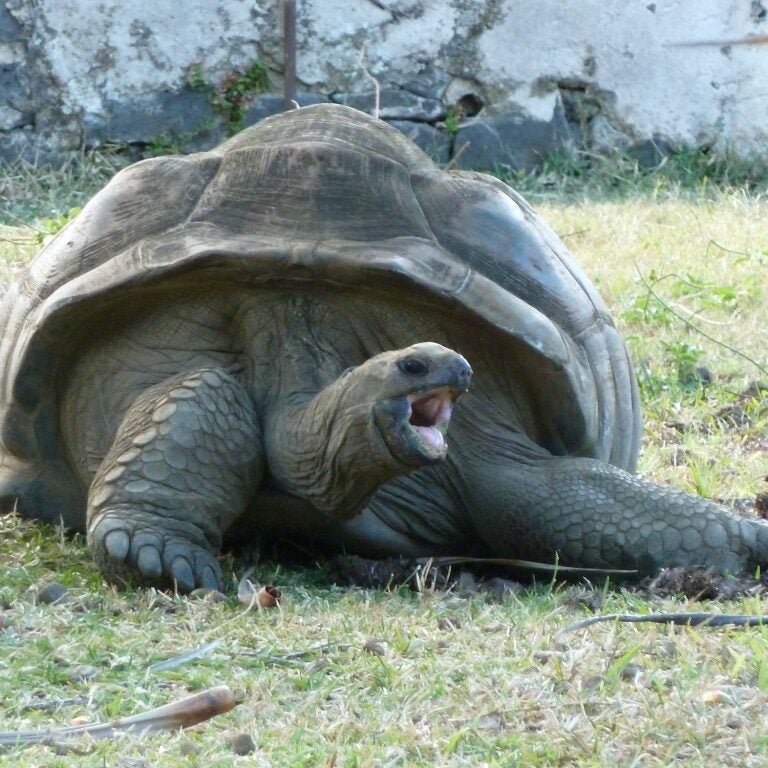
JCHP
The Joint Child Health Project (JCHP) is conducted on Mauritius, a small upper-middle-income island nation located in the Indian Ocean about 500 miles east of Madagascar. Following an invitation by the World Health Organization (WHO), the JCHP began in the late 1960s as a collaborative effort led by the Mauritian Ministry of Health and American, British, European, and Mauritian researchers Drs. Cyril Dalais, Sarnoff Mednick, Fini Schulsinger, and Peter Venables. In 1972,the first data were collected on 1,795 participants who comprised almost the entire population of 3-year-olds born in a 1-year period in 1969-1970 in two adjacent towns, Quatre Bornes and Vacoas. The ethnic breakdown of the JCHP sample was representative of the island and included 69% Indian, 26% Creole, 2% Chinese, and 4% other; 48% of the sample was female.

Previous JCHP Research
The initial goal of the JCHP was originally to understand the causes of mental health outcomes, particularly along the schizophrenia spectrum, but over the years outcomes were expanded to include multiple aspects of health and mental health including cognition, behavior, psychosocial well-being, and most recently substance use. Multiple biological, social, and psychological measures have been collected on the birth cohort participants at various data collection waves in childhood and adulthood, including major waves at ages 3, 11, 17, 23, late-30s, and mid-40s. Data also have been obtained on the birth cohort’s spouses and offspring, which has expanded the JCHP from a birth cohort study to a multi-generational family study.
The majority of JCHP publications have focused on malnutrition, temperament, behavior, cognitive ability, and psychophysiology as childhood risk and protective factors. In addition to shedding light on developmental trajectories for health and mental health outcomes, JCHP publications also have examined the nature of psychological constructs in this cultural context. These studies highlight how examining subgroup and person-level factors within and across cultural settings improve our understanding of the commonality and uniqueness of health and mental health outcomes and correlates across societies.
We express our enormous gratitude to the JCHP birth cohort and their families for their lifelong participation in this study and the very unique contributions they have made to our understanding of lifecourse pathways to health.

Current JCHP Research
Currently, the Co-International Directors of the JCHP are Drs. Luczak and Adrian Raine and the National Director is Tashneem Mahoomed.
Professor Luczak’s most recent NIH-funded study (R01AA18179, with support from the Mauritian Ministry of Health and Quality of Life) has followed the original birth cohort into their mid 40s and added concurrent assessment of their spouses and children, focusing on risk and protective factors for drinking and smoking among other behaviors. Her Fulbright Scholar award (8465-MC), conducted in collaboration with the Psychology Unit of the Faculty of Social Sciences and Humanities at the University of Mauritius, has examined identity development within the offspring generation and its role in early drinking and smoking onset and progression. With prospective and retrospective data and a rich battery on the families, we aim to delineate risk and protective factors for alcohol and tobacco involvement in multiple generations of the JCHP families.
Professor Luczak’s research has been conducted in collaboration with National Director Tashneem Mahoomed and Project Coordinator Shameem Oomur, and JCHP staff, along with faculty members Caroline Ng-Tseung Wong, Ph.D., Carol Prescott, Ph.D., Jo Ann Farver, Ph.D., Adrian Raine, D.Phil., and Peter Venables, Ph.D.
Funding
-
Development and Substance Use Progression in Youth from the Multicultural Society of Mauritius. African Regional Research Award Program (8465-MC; Scholar: Luczak). Fulbright US Scholars Program, US Department of State Bureau of Educational and Cultural Affairs. 2018-2020.
Intergenerational Transmission of Alcohol Involvement. Research Project Grant funded by the National Institute on Alcohol Abuse and Alcoholism (R01 AA18179 and R01 AA18179-02S1; PI: Luczak). 2010-2017
Childhood Precursors to Alcohol Involvement. Mentored Career Development Award funded by the National Institute on Alcohol Abuse and Alcoholism (K08 AA14265; PI: Luczak). 2004-2010.
Additional support provided for Dr. Luczak’s research projects by the Mauritian Ministry of Health and Quality of Life, Mauritian Ministry of Gender Equality, Child Development and Family Welfare, and the University of Mauritius as host institution for the Fulbright award.
-
U.S.: National Institutes of Health (R01 AA10206, R01HD087485, PI: Raine), Ford Foundation, Scottish Rite
Mauritius: Mauritian Ministry of Health and Quality of Life, Ministry of Gender Equality, Child Development and Family Welfare, and Ministry of Education
Denmark: Danish State Department and DANIDA
UK: Mental Health Foundation, Medical Research Council, Medical Research Foundation, Leverhulme Trust, Wellcome Trust
World Health Organization
Select JCHP Publications
- Alcohol Outcomes
- Behavior Outcomes
- Cognitive Outcomes
- Overviews and Intervention Outcomes
- Psychophysiology Outcomes
- Schizotypy Outcomes
FLP: Health and Mental Health Research in Mauritius
Located in the island nation Mauritius, this course focuses on health and mental health research programs. Students will learn about research design, existing health and mental health studies and research programs, unique challenges of conducting international research, and ethical considerations in human subjects research. The goal is to help students begin to develop culturally competent research skills, including understanding the environment the research is conducted and contexts which the outcomes should be interpreted.

Contact Us
Susan E. Luczak Ph.D.
Dornsife College of Letters, Arts, and Sciences
Department of Psychology
3620 McClintock Ave.
SGM 501
Los Angeles, CA 90089




